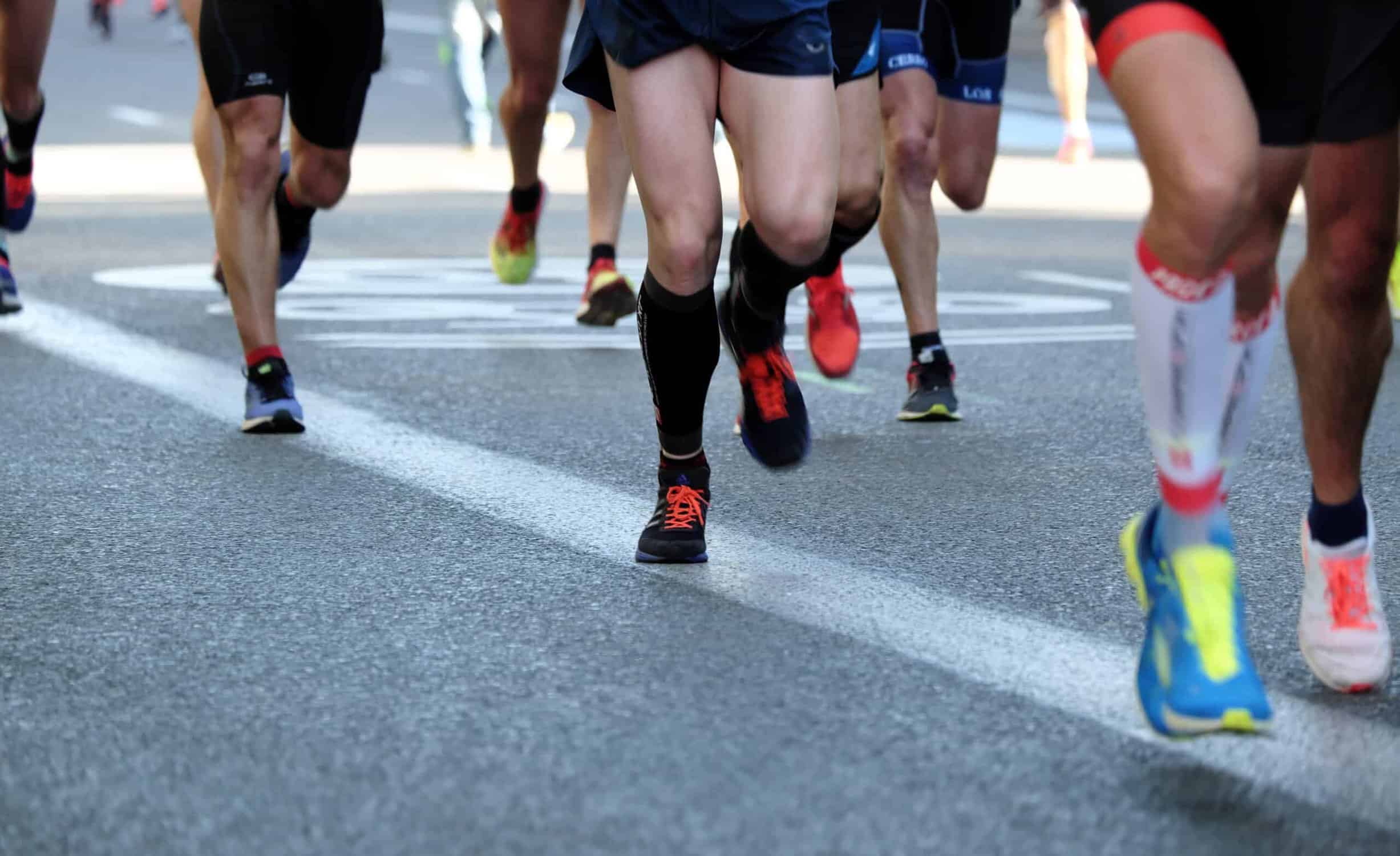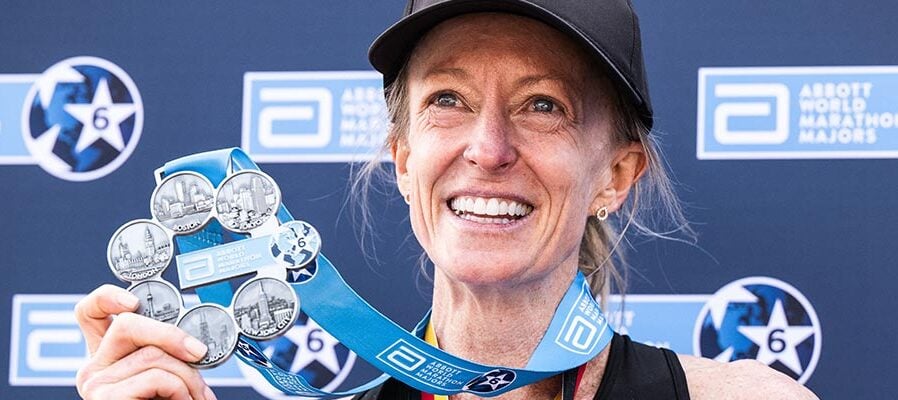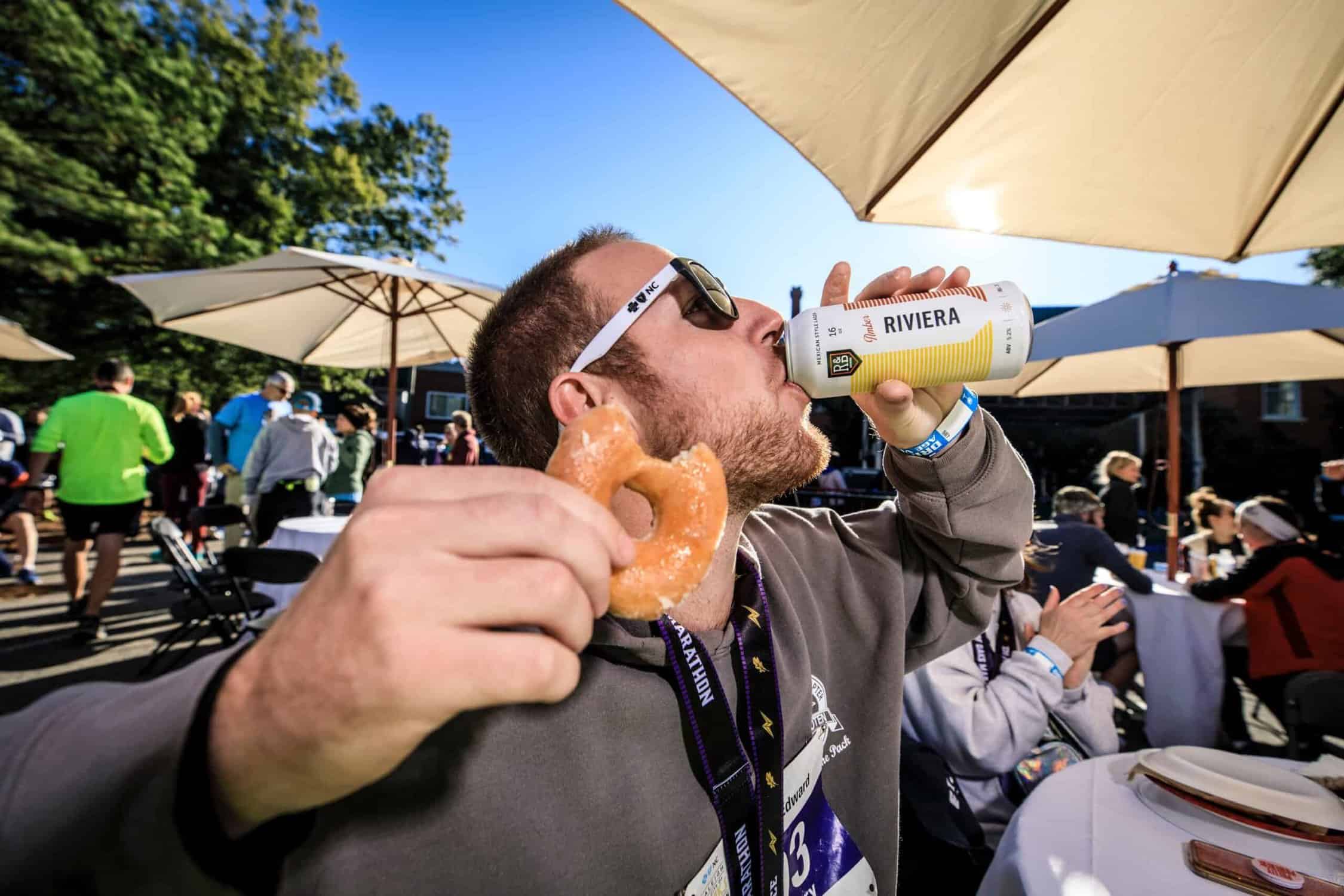So, you’ve put in the mileage, completed your months of training, and your race is just around the corner. At this point, you’ve hopefully nailed your race fueling strategy, but you might still be wondering whether you need to and how exactly to “carb-load” in the days leading up to your big event. What you eat in the days leading up to your race matters. Carbohydrate loading, also known as carb loading, is an important performance enhancing strategy used by marathon runners and endurance athletes around the world. Whether you’re preparing for a marathon or a half marathon, proper carb loading will provide you with the energy needed to perform on race day.
In this article, registered dietitian and endurance athlete Sophie Lalonde-Bester explores what carbo-loading is, it’s benefit to endurance runners, who should consider carb loading, mistakes, as well as and how to effectively carb load for your next long distance race.
What is carb loading?
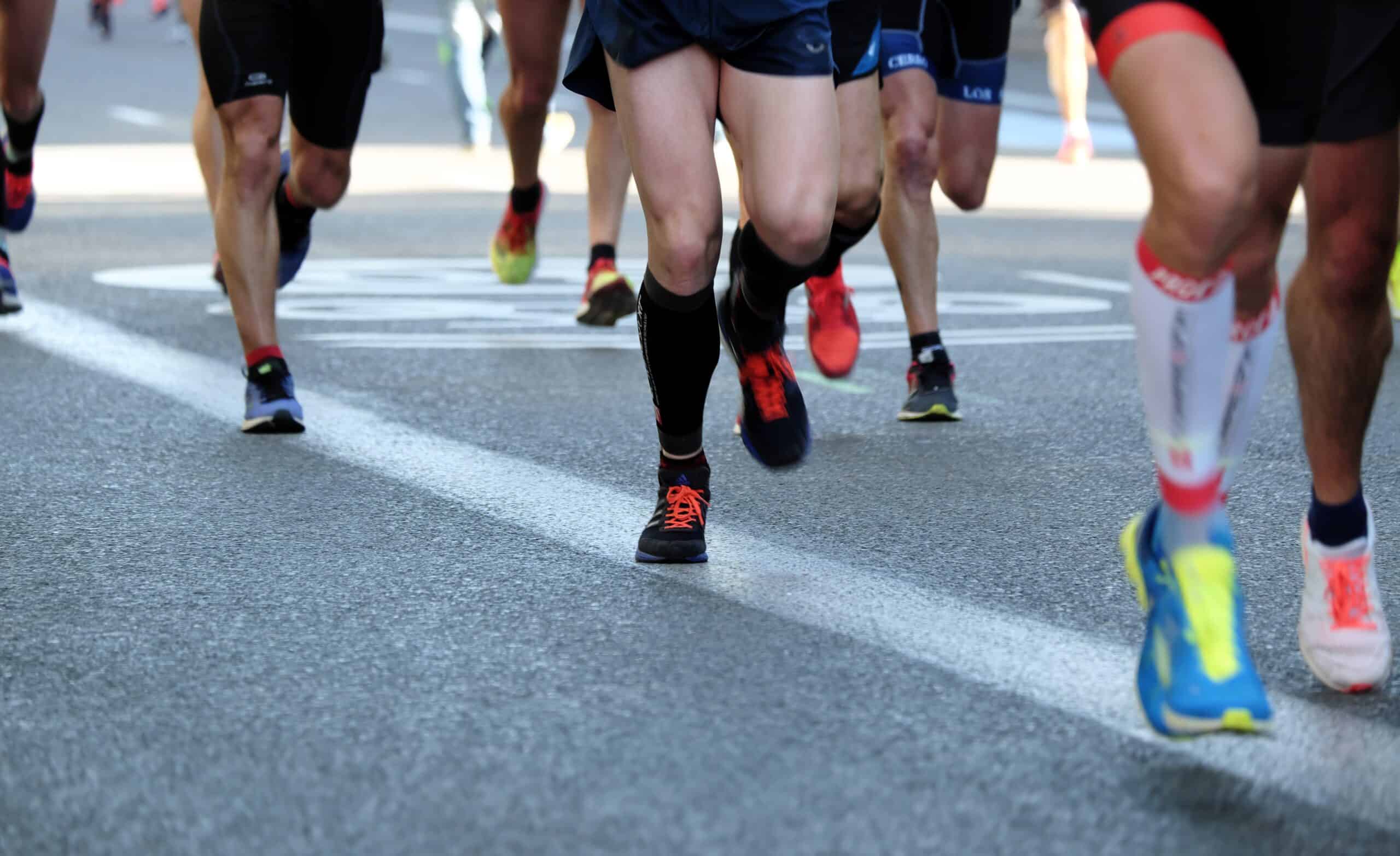
Carb loading is a nutrition strategy that requires increasing your intake of carbohydrates in the days leading up to an endurance event, like a marathon or half marathon.
The goal of carb loading is to maximize glycogen stores in the muscles and liver, which are used as the primary fuel sources during exercise.
Muscle glycogen is broken down to glucose in the body which is the most readily available energy source your body can access. Carb loading isn’t a fueling strategy that would enable you to run faster (that’s what your training is for) but it will help prevent you from bonking or “hitting the wall”, during a long race.
How does carbo loading work?
When runner’s refer to “bonking,” they’re referencing the moment when your body no longer has available muscle glycogen to access to produce activity. Most of the carbohydrates you eat are stored as glycogen in your muscles and liver. Glycogen is the body’s most easily accessible form of energy to use during exercise, but the body also burns fat. Converting fat to fuel, however, is an energy-intensive process and is not as efficient as the burning of glycogen. So, when you deplete your glycogen stores during a race you “hit the wall.” Your body must slow down its metabolism as it turns fat into usable energy. The body transitions to burning fat reserves, which are less efficient and causes a sudden feeling of intense fatigue.
Carbo loading essentially provides the body with a larger fuel reservoir, which helps prevent fatigue and improve endurance.
How does carb loading before a race enhance performance?
Carb loading enhances marathon performance by maximizing glycogen stores in the muscles and liver. As mentioned above, during endurance exercise, the body relies heavily on glycogen to sustain the massive amount of required energy levels.
By increasing your carbohydrate intake leading up to the race, you increase your glycogen stores. This allows your body to delay glycogen depletion during your marathon and maintain higher intensity for a longer durations. This is anything from a
Carbohydrates are the most efficient energy source for exercise. Compared to fat, which requires more oxygen for conversion to usable energy. Carbohydrates like glucose provide quick and readily available fuel.
Who should be carbo loading?
Carb loading is crucial for athletes participating in events lasting longer than 90 minutes, such as long runs, marathons, half marathons, and endurance events. Carb loading is not necessary for shorter races like 5kms or 10kms. It is unlikely you will use up the glycogen stored in your muscles within the time it takes to complete those races.
Should I be carb loading before a marathon?
The short answer is, yes.
Carb loading is recommended for marathons or any race longer than 90 minutes. While carb loading is not mandatory, it is highly beneficial for optimal performance on race day.
Can you run a marathon without carb loading?
While it’s possible to complete a marathon without carb loading, you will likely not perform as well. You may find yourself feeling fatigued and heavy during the later miles of the race.
If you choose not to carb load, ensure you consume an adequate amount of carbohydrates during the race.
How much should I be carb loading before a marathon?
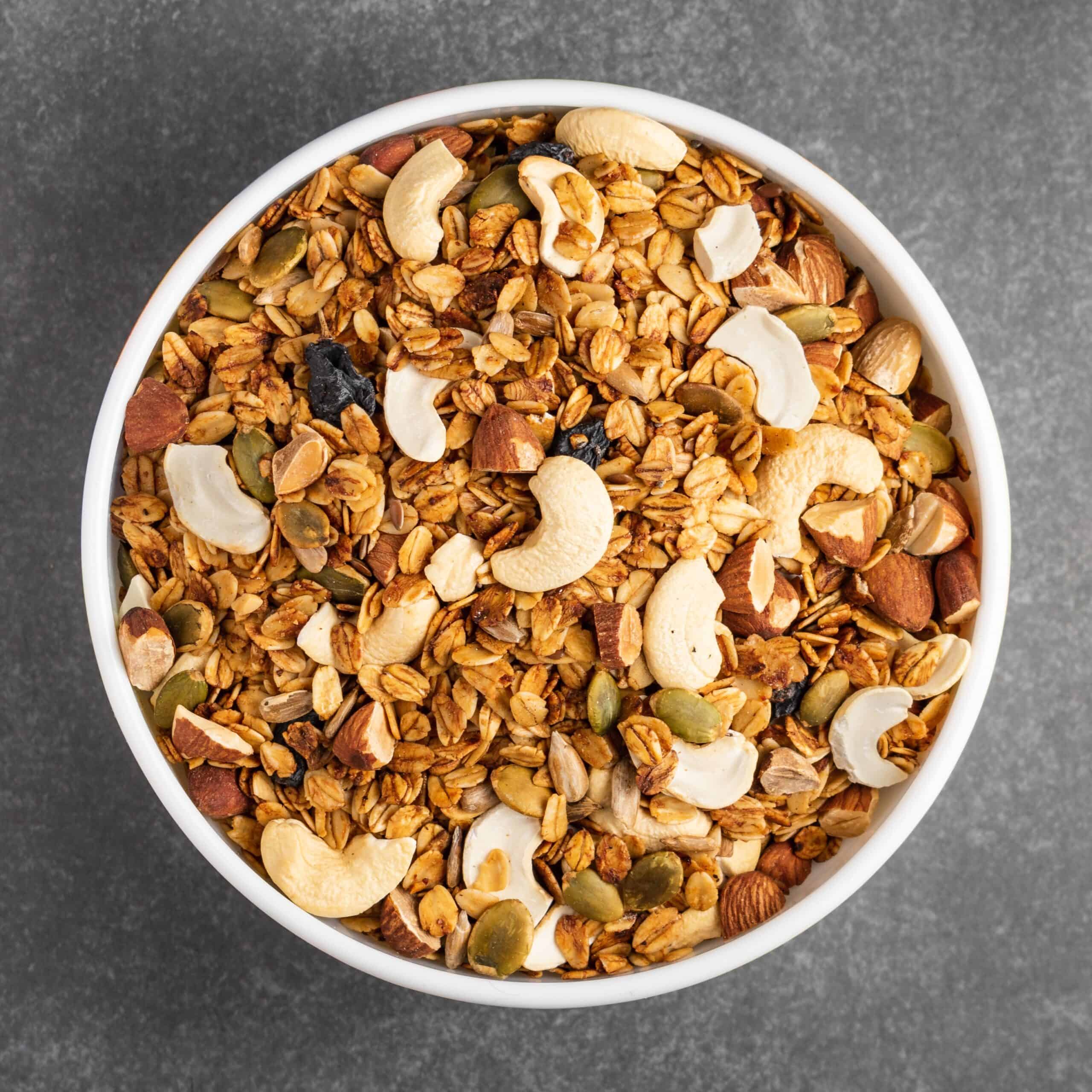
Carb loading is a marathon, not a sprint. One pasta dinner the night before your marathon won’t cut it. You should begin carb loading 7 days before a marathon and 3 days before a half marathon.
Your marathon taper phase should coincide with the carbo-loading phase.
The recommended carbohydrate intake requirement is 7-10 grams of carbohydrate per kilogram of body weight per day.
As an example, if you weigh 70 kilograms (or 154 pounds of body weight), you should aim for approximately 490-700 grams of carbs or 1960-2800 total calories from carbohydrates every day.
It’s important to keep in mind that you shouldn’t be increasing your daily caloric intake during this phase, but rather 85-90% of your calories are coming from carbohydrates. This also means that while increasing your calories in carbohydrates, you decrease your fat and protein intake. To avoid overeating, distribute carbohydrate intake evenly throughout the day and ensure every single meal and snack includes at least one source of carb.
What do I eat the night before a marathon?
The night before a marathon have a high-carb, low-fat meal that is familiar to your digestive system. Choose easily digestible foods such as pasta, rice, or potatoes as your main carbohydrate source.
Avoid heavy, fatty, or high-fiber foods that may cause GI issues. As an example, avoid alfredo pasta – while it may be high in carbohydrates, the sauce is high in fat that won’t digest well for your race.
How to carbo load correctly: Sample plan for carb loading before a race
Carb loading for a long race is a multi-day process. Here is a sample carb loading plan to help you prepare effectively:
7 days out from your marathon and/or 3 days out from half marathon:
During this phase, increase your carbohydrate intake to around 7-10 grams per kilogram of body weight. Focus on consuming high-quality carbs from sources such as whole grains, fruits, and vegetables.
Spread your carbohydrate intake throughout the day, including it in each meal and snack.
Fill your plate with a few less veggies and a few more carbs. For example, if you have toast at breakfast, have an extra slice. If you usually have ½ cup of oatmeal, make it ¾ cup. If you have a sandwich at lunch, use thick slices of bread. If you have rice at dinner, double the portion. Choose high carb snacks like bananas, crackers, and bagels.
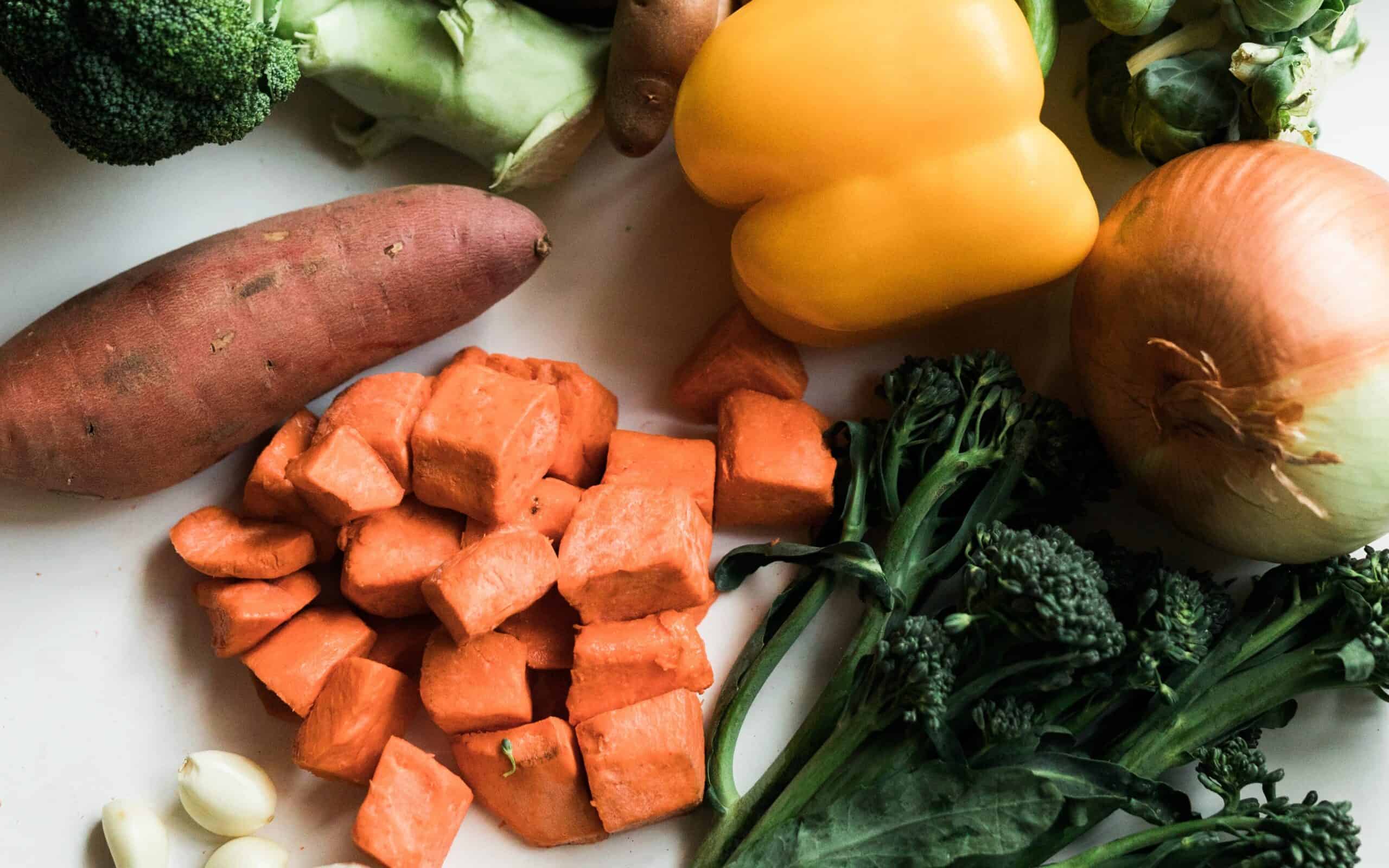
Some foods to eat when carb loading include:
– Sweet potatoes
– Oatmeal
– Quinoa
– Rice
– Pasta
– Toast
– Pancakes
– Bagels
– Crackers
– Bananas
– Gatorade
Avoid unfamiliar fiber-rich foods. If you never really eat beans, now is not the time. However, eat enough fiber to avoid constipation. If you’re feeling constipated, mix in some whole grain bread, whole wheat pasta, and apples with skin to get 20-25 grams of fiber per day.
Stick to foods you and your stomach are familiar with.
Carb loading the day before your marathon or half marathon:
The day before your race, increase your carb intake to 8 to 12 grams of carbs per kilogram of weight. This is the peak of your high carbohydrate diet.
Include carbohydrate-rich foods like bagels, pasta, rice, potatoes, and whole grain bread in your meals.
You can supplement your diet with carbohydrates from sports drinks and electrolyte powders as well.
Before bed, eat a small carb snack the night before your race like some graham crackers or pretzels. Limit any snacks with a higher quantity of fats and fiber.
Carb loading the morning of your race:
Your pre-race meal should consist of easily digestible carbohydrates that won’t cause discomfort during the race. High-fat breakfast items that you should avoid include bacon, sausages, and cheeses.
It is recommended to consume 1-4 grams of carbohydrate per kilogram of body weight in the 1-4 hours before exercise. The size of your meal heavily depends on how much time you have to digest.
If your breakfast is 4 hours before the race, have 4 grams of carbs per kg. If your breakfast is 3 hours before the race, have 3 grams of carbs per kg. If your breakfast is 2 hours before the race, have 2 grams of carbs per kg. And lastly, if your breakfast is 1 hour before the race, have 1 gram of carbs per kg.
Examples of simple, high carb breakfasts include:
– White bread toast or bagels with jam, nut butter (smaller amounts), or honey.
– Pancakes with toppings like fruits and maple syrup.
– Oats with toppings like nut butter (smaller amounts), fruit, honey.
– Smoothies made with fruits and oats.
– Bowl of cereal (choose lower fibre options like cornflakes, Rice krispies) or granola.
– Banana(s) with small amounts of peanut butter.
In addition to the foods above, take gels or sports drinks to the start line.
Carb loading tips for runners from a Registered Dietitian
To optimize your carb loading strategy and avoid making common mistakes, consider the following tips:
1. Gradually increase. Your carbohydrate intake should be gradual in the days leading up to your race. Begin 7 days before a marathon and 3 days before a half marathon. Just consuming a high-carbohydrate meal the night before your race is not enough.
2. Don’t stress about weight gain. Gaining weight while carbo loading is natural because for every gram of stored glycogen, we store 3-4 grams of water. If you gain some weight during the carb loading phase, that’s actually a good thing. It means your body has the glycogen stores ready to race.
3. The type of carbohydrate is important. While carb loading before a race, choose easy to digest carbohydrate sources like potatoes, pastas, oats, breads, and bagels. Fiber and fat are taxing to your gastrointestinal system.
4. Be mindful of protein and fats. Make healthy protein and fat choices. Include smaller amounts of high-quality proteins and healthy fats in your meals to maintain a balanced diet.
5. Don’t wait until race week. Experiment with different carbohydrate-rich foods during your marathon training plan to find what works best for your body. By experimenting and finding what best suits your body, you’ll establish a nutritional plan for the week before the marathon.
6. Stay hydrated. Consuming plenty of fluids and sports drinks throughout the carb-loading phase. Gatorade is a great choice because it contains fluids, carbs, and electrolytes.
7. Consult with a dietitian or nutritionist. We recommend working a dietitian or nutritionist who is experienced with with endurance athletes for personalized guidance if you need extra support!
FAQ
Is carb-loading good before a race?
Yes. Proper carb-loading fills your muscles with glycogen and helps you avoid bonking, allowing you to run a smart race. Carb loading essentially provides the body with a larger fuel reservoir, which can help prevent fatigue and improve endurance.
What should I eat to carb load before a race?
Some foods to eat when carb loading before a race include:
– Potatoes
– Oatmeal
– Quinoa
– White rice
– Pasta
– Toast
– Pancakes
– Bagels
– Crackers
– Bananas
– Gatorade
How long before a race should you start carb-loading?
You should start carbo-loading 7 days before a marathon and 3 days before a half marathon.
What are the benefits of carb-loading before a race?
The goal of carb loading is to maximize glycogen stores in the muscles and liver, which are the primary fuel sources during exercise. This strategy won’t necessarily make you run faster (that’s what your marathon training is for) but it will certainly help prevent you from bonking, or “hitting the wall”, during a long race.
How much weight should I gain when carb-loading?
While carb loading, expect to gain around 2kg of body weight. Gaining weight while carbo loading is natural because for every gram of stored glycogen, we store 3-4 grams of water.
What does carb-loading do to your body?
Carb loading maximizes glycogen stores in the muscles and liver. During endurance exercise, the body relies heavily on glycogen to sustain the massive amount of required energy levels. Carb loading allows the body to delay glycogen depletion during a marathon and maintain a higher intensity for a longer duration.

